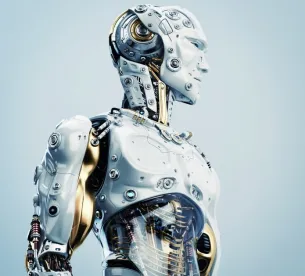The European Patent Office (EPO) has provided further guidance for examination in relation to the patentability of inventions involving mathematical methods and computer programs. This updated guidance is of particular relevance to inventions relating to the fast-growing field of Artificial Intelligence (AI). This guidance was published as part of the EPO’S annual update of the “Guidelines for Examination”.
The new EPO Guidance first defines AI and ML as being “computational models and algorithms for classification, clustering, regression, and dimensionality reduction, [and which may include] neural networks, genetic algorithms, support vector machines, k-means, kernel regression, and discriminant analysis.” Additionally, the Guidance states that such computation models and algorithms relating to AI and ML are “per se of an abstract mathematical nature,” indicating that the EPO will likely treat such algorithms as unpatentable by default.
Generally, under examination by the EPO, applications involving mathematical methods are excluded from patentability unless they are determined to have technical character. In assessing whether a mathematical method possesses such technical character, a determination is made whether the invention produces a technical effect that serves a technical purpose. A generic purpose such as “controlling a technical system” is not sufficient to confer technical character to the mathematical method. However, the Guidance specifically notes that “artificial intelligence and machine learning find applications in various fields of technology,” and highlights examples of a “neural network in a heart-monitoring apparatus” and “classification of digital images, videos, audio or speech signals based on low-level features” as both possessing technical character. In contrast, the EPO identified the classification of text documents solely based on their textual content and classification of abstract data records without any indication of a particular technical use as not having technical purpose. Furthermore, the EPO treats expressions such as “support vector machine”, reasoning engine”, or “neural network” as merely referring to abstract models that are “devoid of technical character.”
Going forward, it appears that AI-ML-related applications filed in the EPO should specifically highlight how a specific field of technology is improved by the AI-ML-related mathematical methods in order to best demonstrate technical character.



 />i
/>i

